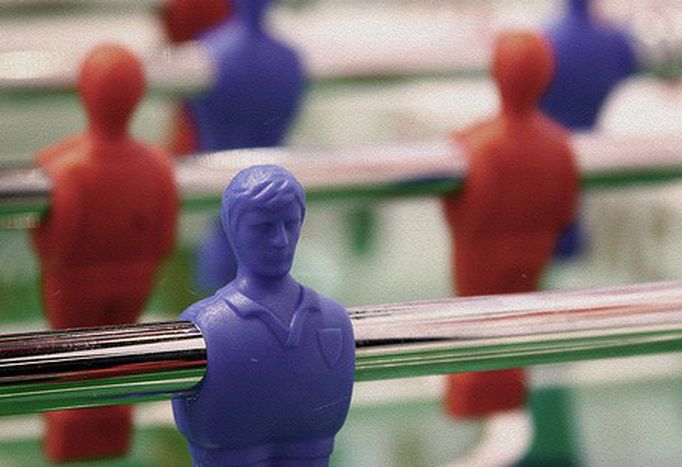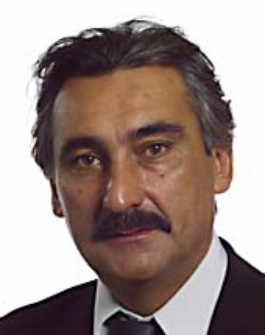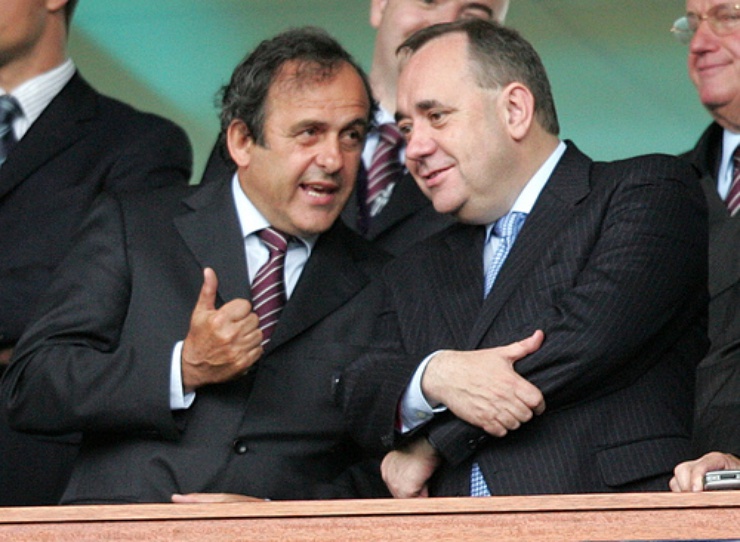
Football: more local players
Published on
Translation by:
 David Robinson
David Robinson
On 30 May FIFA passed a resolution requiring clubs to have at least six national players on the pitch at the start of a match. There has been an outcry from MEPs in defence of the freedom of movement of workers
Football is a subject that provokes heated debate both on, and off the pitch in Europe. As Sepp Blatter, the president of the international federation of association football (FIFA) himself recognises, ‘a minority of clubs control everything: money, players, means.’ In order to fight against this ‘reduction in competitiveness’, on 30 May the 58th FIFA Congress adopted a resolution designed to improve the balance within the sport.
 The vote will encourage the adoption of the ‘6+5’ principle, whereby football clubs must include a minimum of six players entitled to play for their national team at the start of a game. The intention is prevent the richest clubs from buying up all the best players in the world. ‘Today, many clubs no longer aim for the championship titles, but instead play for fourth, fifth or sixth place – even just to avoid relegation,’ adds Sepp Battler.
The vote will encourage the adoption of the ‘6+5’ principle, whereby football clubs must include a minimum of six players entitled to play for their national team at the start of a game. The intention is prevent the richest clubs from buying up all the best players in the world. ‘Today, many clubs no longer aim for the championship titles, but instead play for fourth, fifth or sixth place – even just to avoid relegation,’ adds Sepp Battler.
It is also a question of preventing young, promising players from being poached by those same clubs. Such practices only weaken football and make training pointless. Finally, this rule should increase public identification with national clubs, as more local players play in the teams.
A rule in breach of European law?


 Whilst the ‘6+5’ may have seduced the football world, members of the European parliament believe the rule should be challenged. Led by Guy Bono (France) and Richard Corbett (UK), they took a stand on 8 May by voting for a text opposing FIFA’s plans. Their concern is that the rule would ‘create discrimination on the basis of nationality’, which goes against European law.
Whilst the ‘6+5’ may have seduced the football world, members of the European parliament believe the rule should be challenged. Led by Guy Bono (France) and Richard Corbett (UK), they took a stand on 8 May by voting for a text opposing FIFA’s plans. Their concern is that the rule would ‘create discrimination on the basis of nationality’, which goes against European law.
In theory, there are currently no restrictions on the free circulation of European workers across the EU. Certain temporary measures remain for the new member states, but these do not concern those footballers that have a potential employer.
Bosman ruling in professional sport
It is the ‘Bosman’ ruling that has, since 1995, put an end to national discrimination in European sport, and truly liberalised the market for European sportsmen and women. It has encouraged the emergence of ‘finance market capitalism in professional European sport. And this in the face of a wide disparity between our model of society and our fellow citizens’ aspirations,’ states Guy Bono, a socialist MEP who remains strongly opposed to all forms of employment discrimination.
In football, we have gone from 36 French expatriate players in taking part in the 1995/ 96 English, German, Spanish and Italian championships, to 95 in the 2007/ 08 season. The objective of preventing discrimination by nationality has therefore clearly been achieved. But it has also exacerbated the concentration of the best players.

UEFA caught in the crossfire
For the moment, Michel Platini’s European football associations union (UEFA) has remained rather discreet. With a long-held desire to increase their links with the EU, UEFA is keen to see the ‘6+5’ proposal evolve towards respecting the European legislation. As Michel Platini attempts to explain, ‘We should continue our efforts to try and lean towards the ‘6+5’ objective (not the ‘6+5’ itself), because we cannot consider any action outside of the legal framework.’
For several years, European football authorities have been working on facilitating training at a local level. Its semi-official ‘4+4’ project (the ‘home-grown rule’, or ‘local training law’), should force clubs to include at least four home-trained players in their squad, and four others that trained within the league. MEP Richard Corbett has already emphasised the balance behind this measure. ‘I think that the commission would not challenge these measures in court. A growing political consensus is emerging in their favour,’ he explains.
Possible outcomes?
And the debate continued throughout Euro 2008. The English championship’s best players shone during the championship, without the English national team being able to qualify. Sepp Blater and Michel Platini met the German president of the European parliament, Hans-Gert Pöttering, on 6 June in Brussels. Guy Bono went to Vienna on 26 June to meet with the UEFA president just before the Euro semi-finals.
The ‘6+5’ as presented by FIFA has very little chance of succeeding
Whilst there is consensus on the commercial drift of European football, there will always be a debate about what methods should be used to tackle this. The ‘6+5’ as presented by FIFA has very little chance of succeeding, and UEFA’s ‘4+4’ is acknowledged as insufficient. One thing will not change however, as the French MEP reminds us: ‘Whilst the treaty recognised the specificities of football, that does not mean that football is above the law.’
Translated from Plus de local dans les clubs


